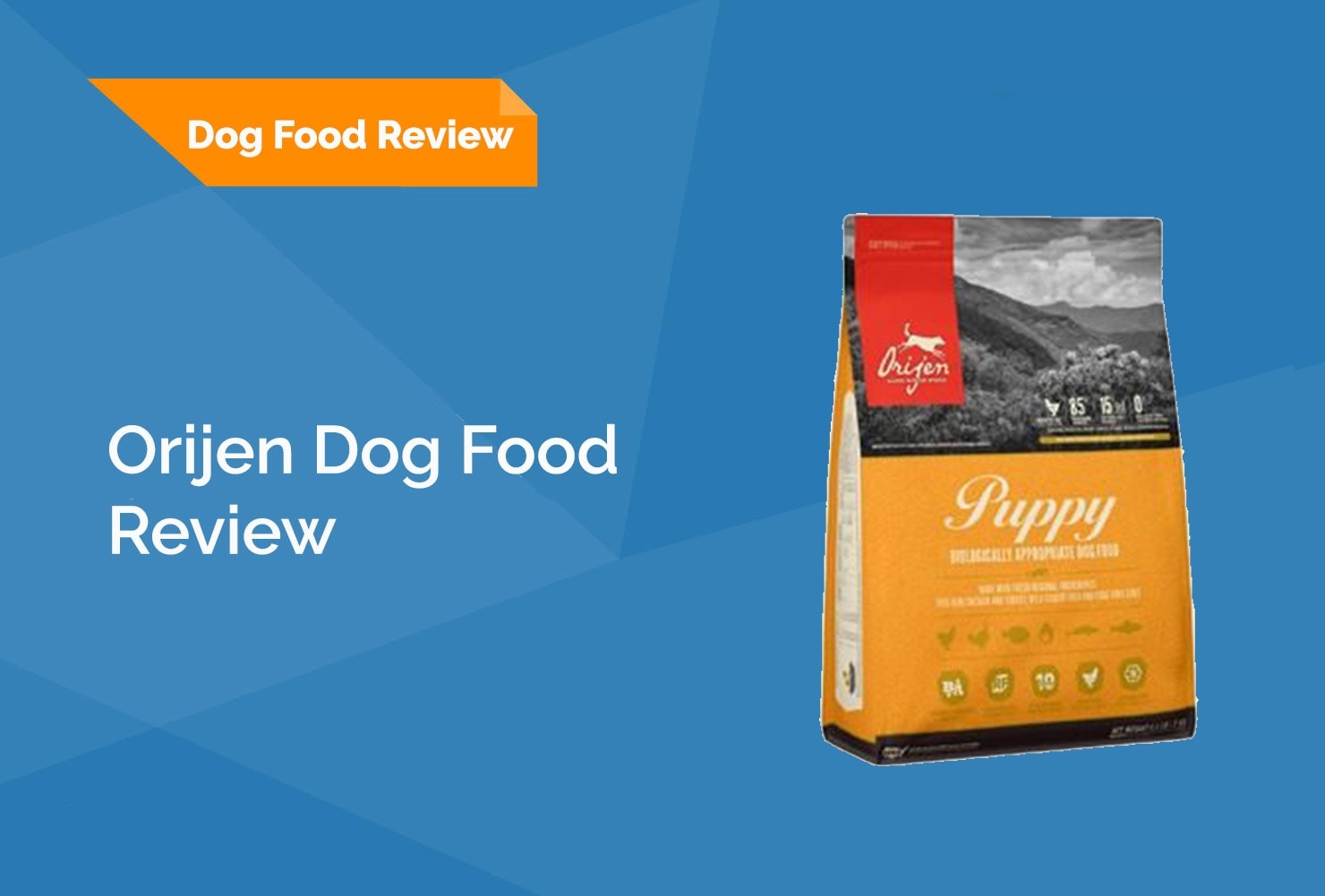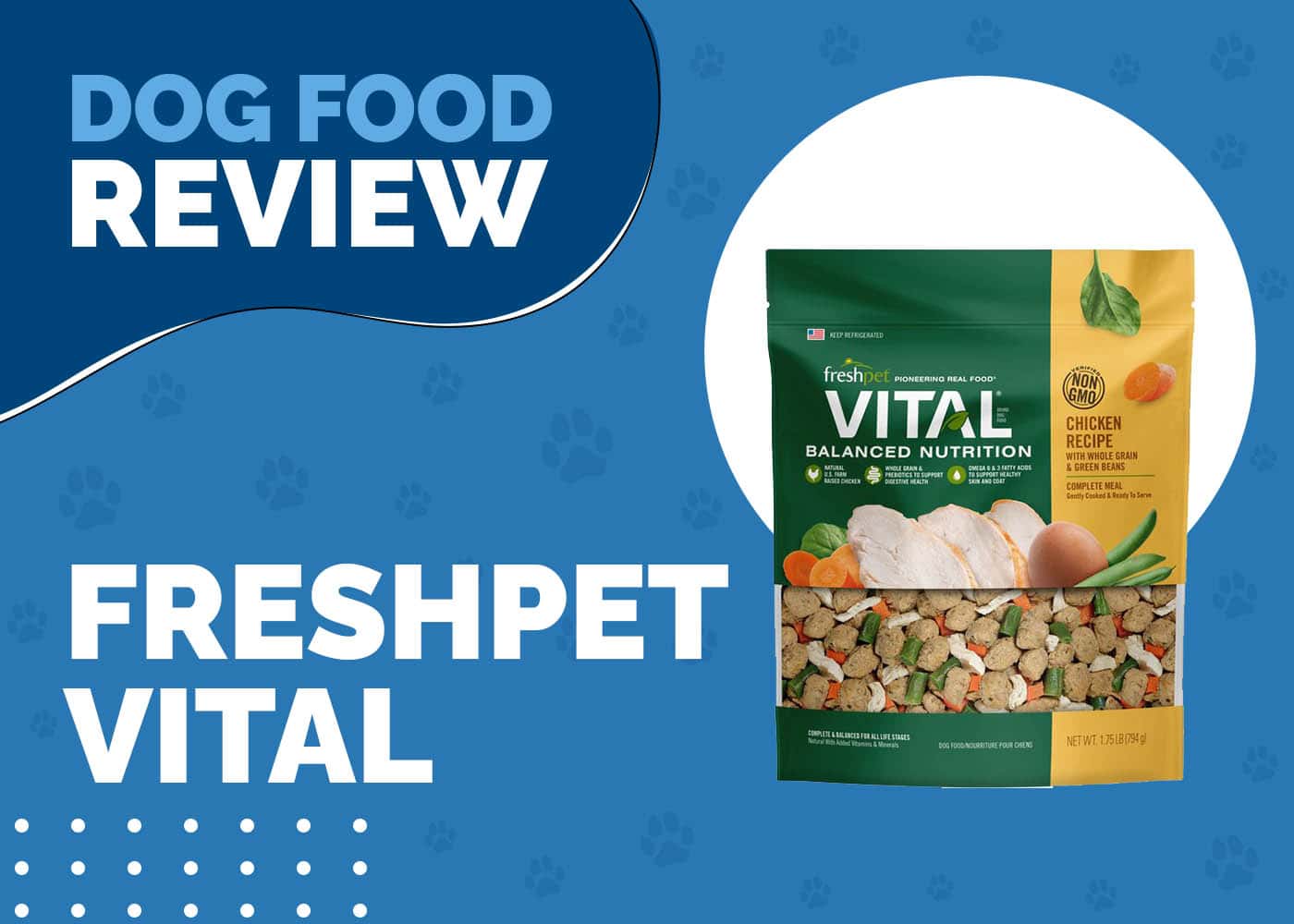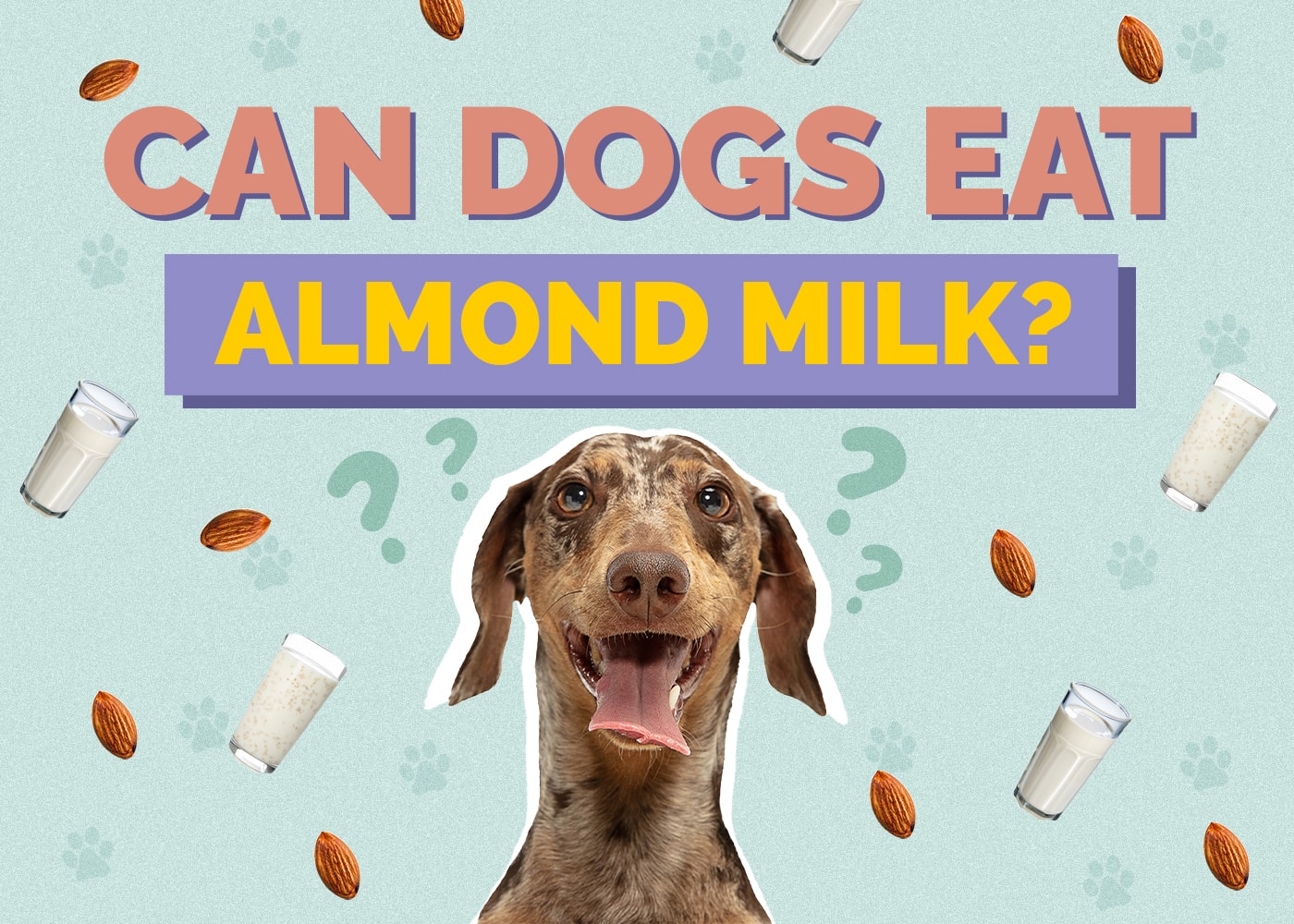Can Dogs Eat Mashed Potatoes? Vet-Reviewed Facts & Considerations

Updated on
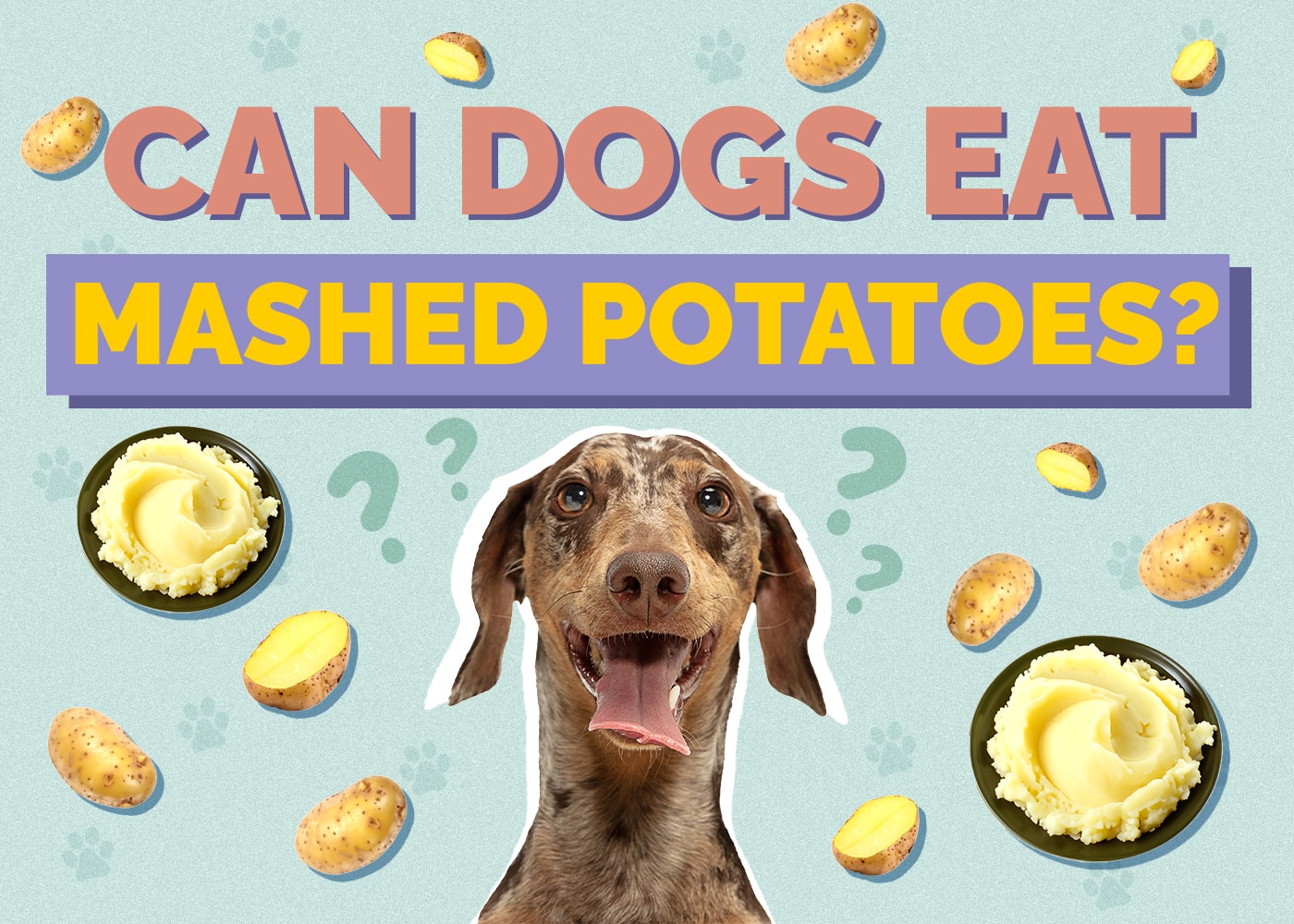
So, you’ve just made dinner and your dog is staring at you with puppy-dog eyes. Should you give in and let her have some of your mashed potatoes? Yes, but there are some things you should know first. It depends on what you’ve put into your mashed potatoes. There’s also the question of whether or not potatoes are nutritious for your dog.
It’s important to check with your veterinarian to make sure your dog doesn’t have underlying health problems, and that feeding human food to your dog is okay.
Ingredients in Mashed Potatoes
Most people, at a minimum, add salt, pepper, milk, and butter to their mashed potatoes. Gravy, sour cream, garlic, and other spices and herbs may be also eaten with mashed potatoes.
Salt
Salt is acceptable in small amounts, but it can also be toxic in excessive amounts. 2 to 3 grams of sodium per kilogram of body weight of a dog can be an issue. As a reference, a can of light tuna in water contains about 450 milligrams of sodium. But you need to think of the sodium content in every ingredient, plus the one in your pet’s food, because it adds up. Besides adding salt directly to your mashed potatoes, there is a lot of salt in the gravy often served with mashed potatoes.
Excessive salt intake can cause vomiting, nausea, diarrhea, or seizures due to sodium ion poisoning.
Milk, Butter, and Sour Cream
Milk, butter, and sour cream are all dairy products. Like humans, some dogs are lactose intolerant. Others can eat dairy without any problems. Puppies have enough of the enzyme lactase to digest their mother’s milk. But as the puppies grow up, many produce less lactase. Remember, dogs in the wild don’t eat dairy products, so your dog may not be equipped to digest them, either.
Eating dairy can cause diarrhea, gas, bloating, and other gastrointestinal problems.
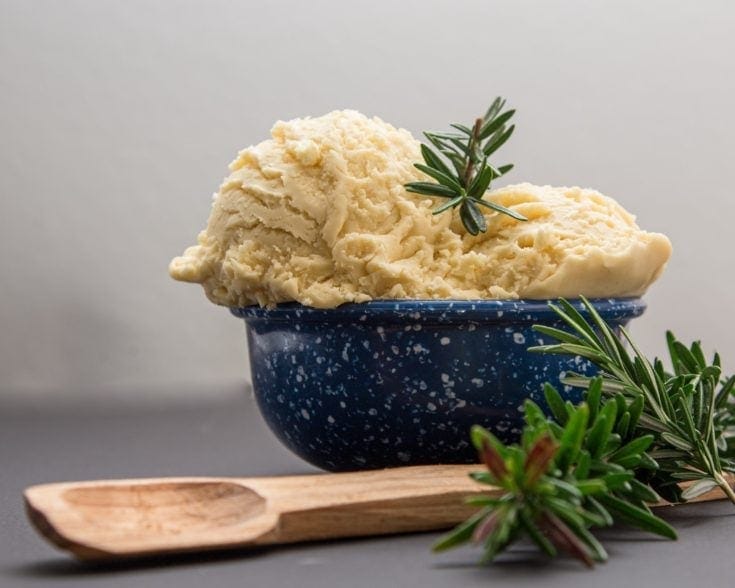
Garlic, Chives, Parsley, and Dill
Garlic is toxic to dogs. Garlic is a member of the same plant family as chives and onions, which also shouldn’t be fed in large amounts.
Ingested garlic can change the shape of the red blood cells in a dog and make the cells more likely to rupture. The ruptured red blood cells lead to less oxygen transportation in a dog’s blood. This is known as hemolytic anemia. Some of the signs of garlic poisoning include nausea, panting, drooling, gastrointestinal distress, weakness, and increased respiratory rate.
Parsley is also listed as toxic for dogs by the ASPCA. If consumed in large amounts, it can make dogs susceptible to sunburn dermatitis. However, it is unlikely that mashed potatoes would include large quantities of it, as it is usually only added as a garnish.
Dill is safe for dogs so you do not have to worry about this aromatic garnish.
Nutritional Value of Potatoes
Potatoes are mainly a source of carbohydrates with a few proteins. Potatoes also contain some fiber, which can help your dog’s digestive system. They can also provide some micronutrients to your dog, and these include potassium and choline.

Too Many Carbohydrates
Dogs are facultative carnivores, which means that they have adapted to ingest and benefit from including some carbohydrates alongside their mainly meat-based diet. However, feeding them too many carbs can lead to problems with obesity and secondary health issues, such as diabetes, arthritis, and a lower life quality.
So, feeding mashed potatoes only in moderation is key.
A Word of Caution About Raw Potatoes
One thing to remember is not to feed your dog raw potatoes. They contain a substance called solanine. Solanine can be toxic to dogs and when ingested can make a dog begin to show signs of food poisoning. Signs of solanine poisoning are depression, hypersalivation, and heart problems.
Final Thoughts
In short, yes, it’s okay to feed your dog mashed potatoes. It would be best to feed as a treat only. The cooking process rids the potatoes of the toxins found in their raw form. Potatoes, in general, are nutritious to dogs, but not in large quantities because of the number of carbs. Just be careful of the extra ingredients that you add to your mashed potatoes.
Avoid garlic, excessive amounts of salt, and dairy products like milk, butter, and sour cream.
See Also:
- Can Dogs Eat Baby Food? Is Baby Food Safe for Dogs?
- Can Dogs Eat Potato Skins? What You Need to Know!
Featured Image Credit: Hebi B., Pixabay




